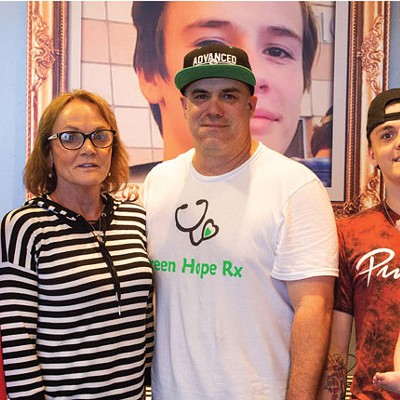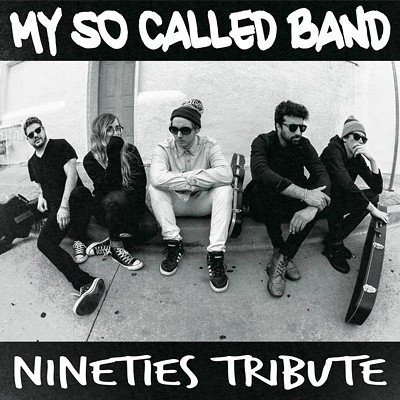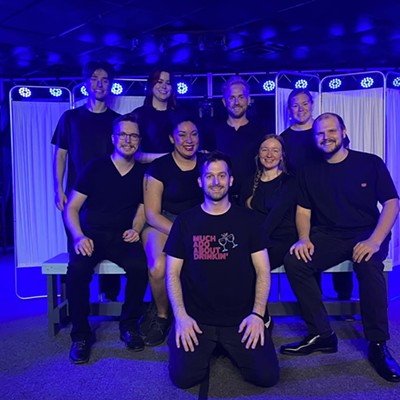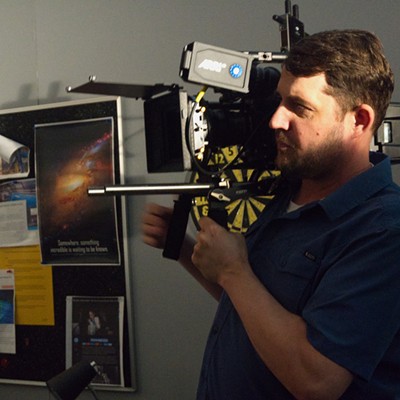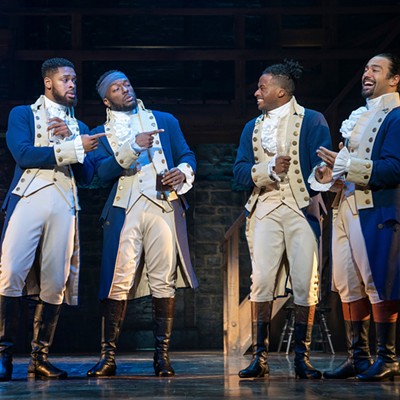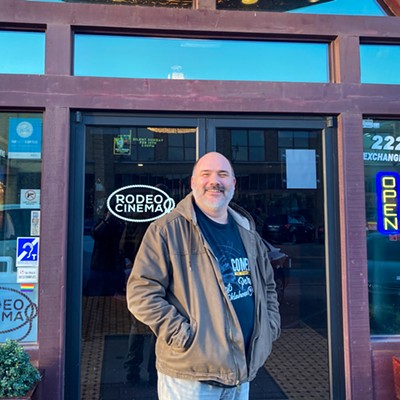Trans-Siberian Orchestra returns to Chesapeake Energy Arena on Dec. 5 with a production of The Ghosts of Christmas Eve. The brainchild of the late composer and songwriter Paul O’Neill, the upcoming outing reflects nearly two decades of touring for the collective. The tour also marks a full year since O’Neill’s passing in April 2017, a loss that tested the orchestra’s timelessness in the absence of its founder.
Formed in the early ’90s as a classical music-infused collaboration of arena rock veterans, TSO transitioned from a successful experiment to an ongoing spectacle in 1996 off the heels of its inaugural tour. A crossroads of young and seasoned musicians, the group’s talent pool traces to O’Neill’s work producing metal bands like Savatage. However, far more than a lavish gimmick, the orchestra has conjured contemporary holiday classics like “Sarajevo 12/24” and “Wizards in Winter.”
Though TSO’s music and production accounts for much of its acclaim, the orchestra’s longevity was ensured by the imagination of O’Neill. The Ghosts of Christmas Eve, for instance, is an original story from O’Neill involving a young runaway finding refuge within a dilapidated theater. Adapted into a film in 1999 to better frame TSO’s performance, the piece has become one of the orchestra’s most iconic arrangements.
Al Pitrelli, longtime guitarist of TSO and alumnus of Alice Cooper and Savatage, was incredibly close to O’Neill and played a key role in establishing the group. Even with a lifetime of performances in front of countless, sold-out stadiums under his belt, the sorrow of his mentor and friend’s loss deeply impacted the musician.
“It was really hard to deal with it last year,” Pitrelli said. “Everything on that stage, every note we played and every pyro hit was Paul’s creation, so he was there with us at all times. There were a few moments in the show where I really had a difficult time just getting through it because Paul was like a big brother aside from being our boss, producer and creator of this whole thing.”
The decision to run The Ghosts of Christmas Eve this year was done to emphasize the legacy of O’Neill’s craft. Jeff Plate, recurring and current drummer of TSO, recalled the importance and purpose of bring Ghosts back to the arena for a third encore.
“Years ago, [Ghosts] really brought us into the living rooms of a lot of people with the television show,” Plate said. “When Paul originally put this show together, he absolutely loved it. When we brought it back in 2016, the response to the show just seemed to have gone according to plan; it really couldn’t have gone better. When we lost Paul, doing this show was just a great way to honor him.”
As a handful of viral videos featuring carefully sequenced Christmas lights attest, TSO utterly embraces the power of an over-the-top live set. Plate often finds himself encased in a chandelier of a drum kit while flames rise around him, and Pitrelli’s shadow gets cast across the audience, shattered and reassembled by a storm of lasers.
Bringing TSO’s performance to life requires a Herculean endeavor. Roughly 18 trailers haul the group’s stage setup in a caravan that is propelled by a superhuman engine of caffeine and road stories. For the performers, the perseverance of their crew often gives them the determination to play with consistence.
“If any of us onstage are ever feeling sluggish and dragging their feet or feeling sorry for themselves, just look at the crew,” Plate said. “More than likely, they’ve had maybe two or three hours of sleep and they’re going to do the same routine the following night and then again after that.”
Like a traditional orchestra, no contributor to the orchestra is a standout themselves, but a nonetheless integral piece of a force bigger than any single career, even that of its founder. Talent will inevitably cycle in way or another, but the idea will persist.
“Time is our most precious commodity — 20 years of touring and 25 years of recording have gone by in a blink of an eye,” Pitrelli said. “We’ve watched it from infancy to adulthood and become something we never really thought it could be. As we learned tragically over the last couple years, time is way too precious to squander. You can never go back to yesterday.”
In many ways, O’Neill’s passing triggers a shift for TSO and a challenge to its longevity as an institution. However, Plate, Pitrelli and their colleagues feel this change was a certainty they would have to confront. Fortunately, it doesn’t seem as though they’ve missed a beat.
“Sorrow and the pain that goes along with losing a loved one was prevalent with every one of us,” Pitrelli said. “Paul had always said, ‘We want this thing to live long past all of us.’ I don’t think any of us were prepared for that to occur so soon, but we were kind of handed that task. We kind of just really hunkered down last year, more so than usual, to make the show the best it could possibly be. Now here we are exceeding last year’s ticket sales, let alone the excitement building towards this tour, it just means again Paul was right as usual. This will live past all of us.”
Visit trans-siberian.com.



